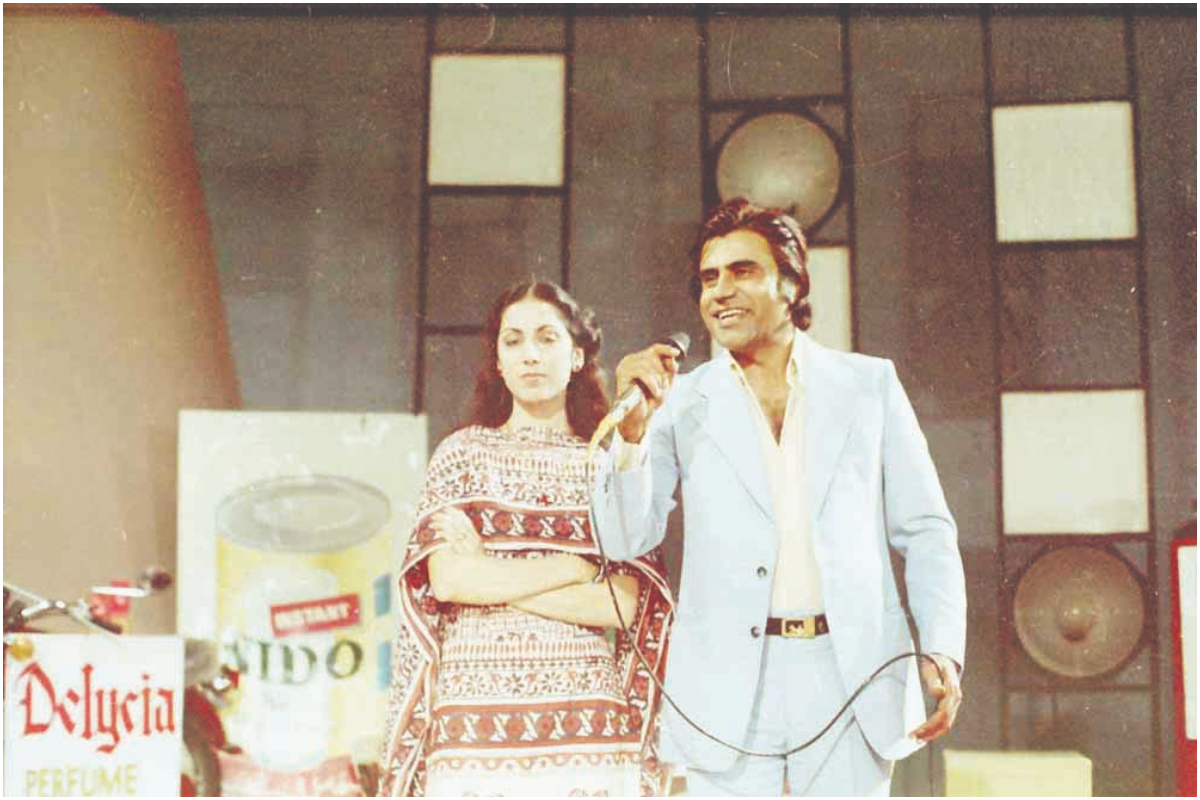
And the right answer is….!
Where have all the great quiz shows gone? BOLD delves deep into the matter
The prevailing paucity of television quiz shows these days could be a matter of surprise to some people. However, given the current state of affairs in today’s electronic media, it does make sense to have more time for popular visual content and splashy broadcast at the expense of quiz programmes or similar game shows that are based on intelligent content and matter to a handful of audience of high-brow television.
Promoting education and learning, many quiz shows have internationally emerged as a distinct, highly popular as well as a bestselling genre in the world of television. In marked contrast, the TV industry in Pakistan seems to be hell-bent on taking a retrogressive path in the guise of entertainment, recreation and education. Long past are the days when quiz shows such as Kasoti, Jahan Numa, Sheeshe Ka Ghar, Neelam Ghar, Zehni Aazmaish, Zauq-e-Aagahi and That’s It were household names, and so were their scholarly and studious hosts and intellectual figures like Obaidullah Baig, Iftikhar Arif, Zia Mohyeddin, Ghazi Salahuddin and Quraish Pur.
Despite over a hundred TV channels, the number of quality quiz programmes has drastically been reduced over the last two decades, and currently, only the BOL Entertainment is especially focused on producing a bunch of quiz programmes. For example, Inam Ghar, hosted by Aamir Liaquat Hussain, was also a riveting quiz programme which amassed much popularity, particularly among the young people. As things happen now, whatever is aired on television in the name of TV quiz shows is not basically aimed at testing one’s knowledge or examining one’s mental agility and memory skills. In place of producing intellectual content to engage the mind and cerebral faculties, the current format of quiz programmes has reduced them into a gift-dispensing spree, based on a hodgepodge of riddles, funny acrobats, weird gimmicks, tongue twisters and slapdash action-based performances that amuse, entertain and make the audience laugh in stitches under the cover of a knowledge-sharing and learning TV programme targeting the whole family.


It does not suggest that there is a dearth of quiz shows in today’s TV channels or efforts are not being made to produce hit quiz programmes. However, the format of modern shows is not chiefly designed to test the participants’ knowledge and mental abilities as today’s quiz shows, especially when compared with classic quiz programmes, happen to be a kind of mixed bag, featuring several games, sitcom and musical performances, and the ilk, other than having merely a question and answer session intended at putting the participants’ knowledge to test.
Ostensibly, the blanket approach relegates these otherwise serious, highbrow programmes to a piece of light entertainment vying to get a laugh out of both participants and viewers sitting at home in order to keep them interested, entertained and not bored or fed up to the back teeth. Most importantly, the air-time allotted to quiz shows plays a pivotal role for their large-scale commercial success. Despite immense potential to attract an audience, however, most quiz-based game shows are not aired during the prime time and thus are unable to win heavy viewership.
This also speaks volumes of the numerous risks involved with airing quiz programmes during peak viewing hours as these shows are not considered right up the audience’s alley, especially in a society like ours where most people crave a kind of entertainment, which is interesting and intelligible in the first place as well as equally electrifying and exhilarating right from the beginning to make them feel relaxed, rewarded and entertained after an eventful day. On the other hand, the quiz programme, as its genre suggests, is considered as dry as dust to the average viewer as if it is something unusual which oozes intellectualism and puts one to sleep within a moment, which is not true.
For most of the TV audience, quiz shows are a source of learning solely produced for the young students with the aim of education and do not have the quintessential spice to entertain the lowbrow audience to the point of making their time well-spent, as it is done by the rest of the prime-time shows revolving around love, hate, dance, romance, vengefulness, together with other entertaining attributes, laced with cheap titillation that characterise the entertainment world.


An all-encompassing ‘boring’ element is indeed a point of concern for today’s TV audience as well as for the emerging lot of TV directors and producers putting their best efforts to make their game shows a hit with the audience. No doubt, it has become the most difficult task to cater to the new tech-driven generation with a considerably less attention span as well as reducing appetite for educational content, compared to the people of the offline world of the 1970s, 80s and 90s. Be that as it may, what could be a more herculean task other than attracting those viewers who have plenty of such entertainment sources at their fingertips round the clock that don’t require them to engage their cerebral crannies? When it comes to a yawn-producing quiz programme in particular, it becomes more challenging to make it truly a prime-time family show able to grab the most viewership along with increased consumer engagement and high TV ratings.
Most of all, those who are at the helm of media institutions tend to live in a binary world, ruled by clashing dualities and polar opposites in all respects. In reality, for instance, the audience consumes what they are offered by the media, however, most media outlets claim to feed the content to the audience they only want. Amidst such contradictory statements dotted with imprecise observations and sweeping assessments, a flurry of TV programmes that rule the prime-time television are mostly shallow to the core and are tinged with a superficial theme which may work miracles in terms of earning them more TRPs and ad revenues. However, in marked contrast, such mainstream, yet dumb programmes do little to add to the cognitive abilities and intellectual development of viewers in general and children in particular.
As things currently stand, mainstream TV shows chase after commercial success and are more focused on entertaining the audience with cheap tactics. Although the most popular current affairs programmes and talk shows are primarily aimed at informing the audience of current political developments along with grave socio-economic issues facing the country, the selected chunks of information disseminated through these shows are highly subjective and are bereft of any piece of information and rich knowledge which may lead to enlightenment and edification, creating general awareness about the world we live in as well the life led by our forefathers the year dot, in caves, rock shelters and wattle-and-daub huts.
Overflowing with political updates and current happenings, these talk shows and news programmes, from the word go, have less to do with the enhancement of viewers’ intellectual capacity and more to do with making a politically aware mindset inclined towards a particular narrative. Thus, creating political awareness is the most sought-after objective that too within a predefined line that is mostly achieved at the end of the day, while no such efforts are undertaken to build up one’s intelligence quotient (IQ), stimulate creativity, and increase one’s general and special knowledge about various fields of study and the world at large.
The point of fact is that most TV channels in Pakistan are struggling to produce a hit quiz programme by all measures and if truth be told, no Pakistani channel in the past two decades has been able to launch a flagship quiz show in particular. Running continuously for the last 23 years, ‘Kon Banega Crorepati (KBC),’ an international TV game show franchise of ‘Who Wants to Be a Millionaire?’ is the most successful TV programme. On the contrary, the KBC franchise in Pakistan ended up as a flop show and discontinued after its first season. The same fate occurred to many other talent shows in Pakistan which were heavily inspired from the most popular international TV shows such as ‘American Idol’ and ‘The Great Indian Laughter Challenge.’
Does it have something to do with the lack of talent in Pakistan? The answer is in affirmative to a large degree, since with a rapidly regressing socio-economic situation of the country coupled with its poor human development indicators, worsening law and order and demographic challenges, the people of the country, particularly its youth, are not living in the same world where they were living some decades before. With most efforts geared towards ensuring their basic survival on a day-to-day basis, only a very small percentage of people are now able to focus on what they are capable of doing in order to fulfil their individual dreams and achieve the optimum level of self-actualisation.
Bereft of a supportive environment, diminishing reading culture and with scant avenues to elevate, enhance, and express their talents, today’s young generation is at a loss in relation to the human development indicators. Other than talent deficit, the young, tech-savvy generation, which is smarter than those of the previous generations, can also be referred to as the lost generation, because it is more into employing modern communication tools and exploiting technological advances. However, the new breed has lesser interest in learning about history, science, art and classic literature through conventional ways and thus fails to comply with outmoded intellectual recreational activities. Keeping in view content consumption preferences, a considerable amount of effort must be devoted to design and produce TV quiz programmes, which are based on cerebral content and are informative, entertaining and rewarding for a large number of Pakistani audience.
The other major reason behind the poor consumption of quiz content in the country is not related to the lack of hefty awards and lucrative prizes. Straight to the point, most anchors are less qualified and incompetent to host quiz programmes since they don’t have the much-needed intellectual knack, scholarly aura and literary prowess, as required in these kinds of TV shows. Moin Akhtar and Aamir Liaquat Hussain were good entertainers and so are Ahmad Ali Butt and Fahad Mustafa. Having had previously no proven artistic credentials, stardom or mass popularity, however, Quraish Pur and Tariq Aziz were erudite, literature-savvy and knowledgeably more equipped to anchor their quiz shows and thus were able to run their programmes all alone for a number of years, even decades without a break, which is no mean feat by all accounts.

In addition to that, it is quite rare for contestants of a quiz show to earn nationwide fame as it was done by Hafiz Naseem, a blind contestant from Karachi, who won the car, the biggest prize of the TV show ‘Neelam Ghar,’ which was later rechristened as ‘Tariq Aziz Show.’ In a similar vein, Asim Siddiqui, a student of the NED University, Karachi, achieved recognition through quiz programmes, mostly anchored by Quraish Pur. Asim Siddiqui even represented Pakistan in an international TV quiz show held at the SAARC level. Also, such well-known TV anchors of today as Iqrar Ul Hassan and Waseem Badami rose from quiz programmes.
Similar to melodramatic TV serials, never-ending soap operas and eye-candy drama series, intellectual content merits a primetime slot to simultaneously educate and entertain most of the audience. Based on intelligent content and a well-researched format, TV shows can serve as a nursery for young talent. In the end, is it too early to herald the death of ‘intellectual television’ in Pakistan? Your guess is as good as mine.
Catch all the Bold News, Breaking News Event and Latest News Updates on The BOL News
Download The BOL News App to get the Daily News Update & Live News.





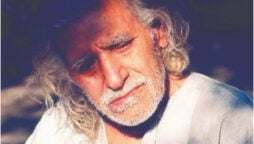
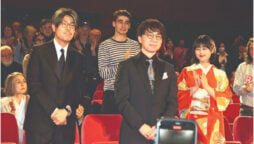
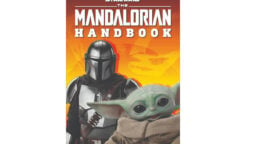
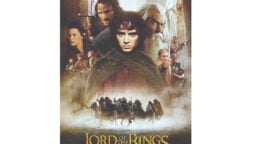
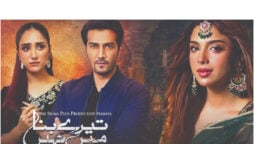
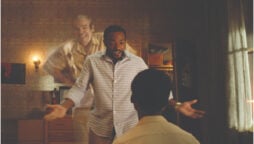

 Read the complete story text.
Read the complete story text. Listen to audio of the story.
Listen to audio of the story.